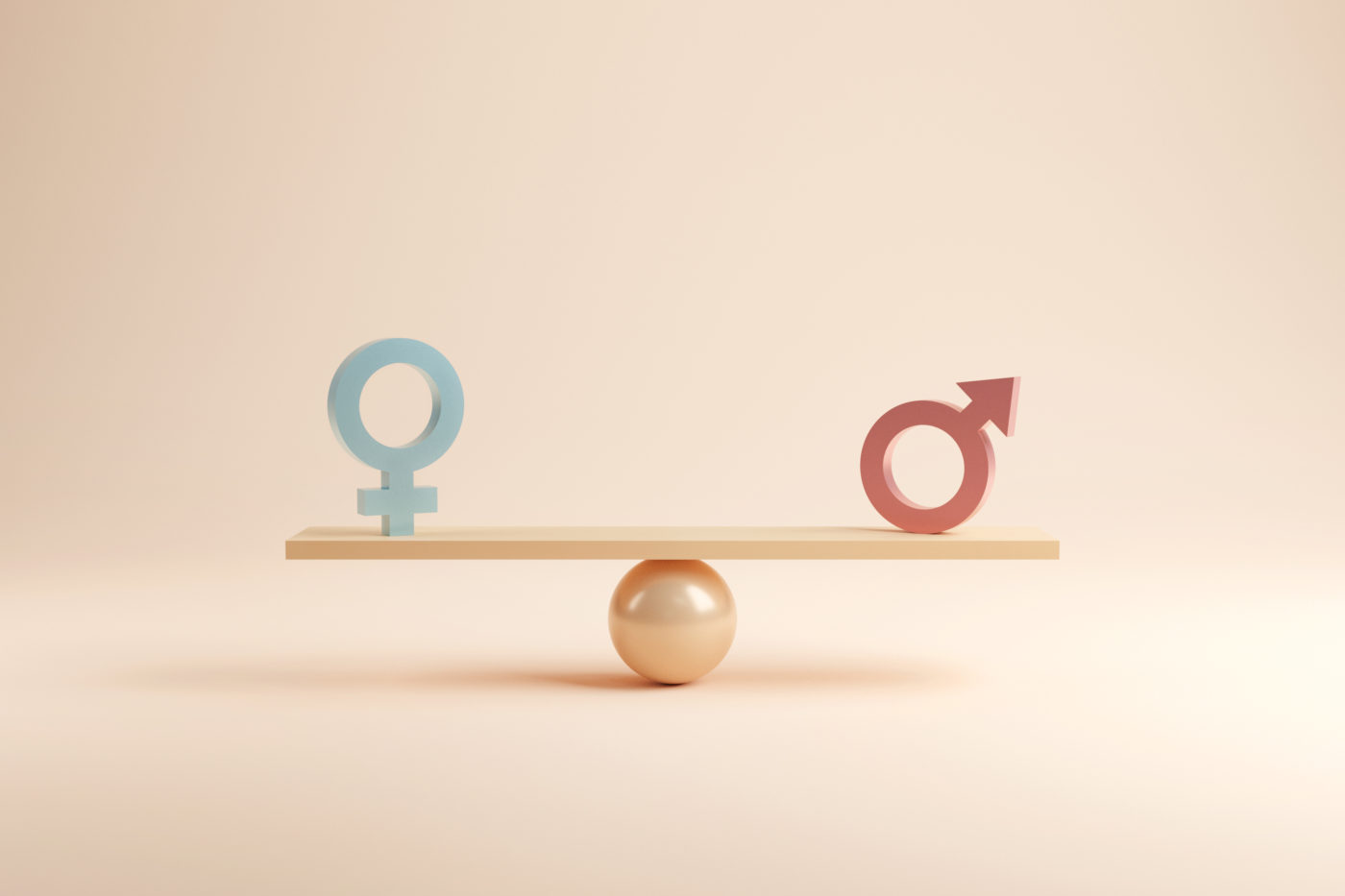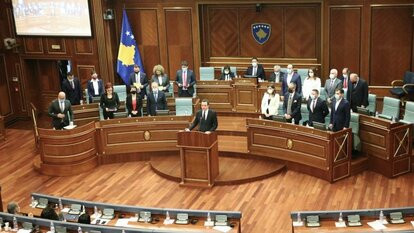INCLUSIVENESS OF PARTY OF DIMENSIONS OF GENDER AND AGE
Sexism in the politics and society of Bosnia and Herzegovina
Bosnia and Herzegovina is a society that classifies numerous activities into the so-called men's jobs, including political activity. The role of women, economic dependence, questioning of women's abilities, double standards for women and men, a deeply rooted opinion that women belong exclusively in the home and with the family, inadequate support from the family itself and institutions, are just some of the reasons for the low participation of women in the political life of Bosnia and Herzegovina. In addition to the low participation in terms of numbers and the positions assigned to women, the most common are those that require a lower level of responsibility and are not decision-making positions, despite the proven leadership abilities of women and their right to participate equally in democratic processes. The public is familiar with the statement of a politician who said that gender is a completely wrong basis for political organization and can only bring harm, especially to women who are brainwashed through such organizations to the extent that they are no longer capable of normal socialization with the rest of society. In Bosnia and Herzegovina, the issue of gender equality still stands as a purely legal issue, while implementation and reality are something else. Numerous institutional frameworks deal with issues of gender equality, from the national to the local level, through the legislative and executive powers. Commissions dealing with the issue of gender equality were formed within the legislature. Political parties, as a link between citizens and public policies, in 2014, through the Statement of Commitment to Gender Equality, prepared by the Agency for Gender Equality, committed themselves to respect the Law on Gender Equality of Bosnia and Herzegovina, to equally promote male and female candidates, activities that will include issues of gender equality, including the topic of gender equality in the programs of political parties, promoting cooperation with institutions responsible for respecting gender equality, supporting equality and equal opportunities for women and men, etc.
Everything sounds great in theory, but the question is what is the real situation?
When standing for equality, then we should talk about the equality of both genders. The statutes of the parties in Bosnia and Herzegovina are written exclusively in the masculine gender, although they argue that for the sake of clarity, the expressions are given in one gender (masculine) and thus discriminate against the feminine gender. In addition, the statutes of the parties provide for various forms of interest organization, including women's organizations, but not men's organizations. A positive example in Bosnia and Herzegovina is the Statute of the Social Democratic Party of Bosnia and Herzegovina which foresees the existence of the Women's Forum of the SDP BiH and acts as a special type of women's organization. Also, it is obliged to respect the Program and Statute of the SDP BiH and the decisions of the bodies of the SDP BiH. The Women's Forum participates in all discussions on political issues of Bosnia and Herzegovina, as well as on all key issues, formulates proposals and initiatives that can be sent to all bodies of the SDP BiH, including the Congress, registers and nominates candidates for all positions as well as for positions in representative and executive bodies. The president of the Women's Forum has the right to discuss and vote and is a member of the party presidency.
Sexism in state bodies?!
However, although some parties have regulated their Statutes, the behavior of members is often not following it, and members publicly express their sexist and misogynist attitudes. The public of Bosnia and Herzegovina often witnesses sexist insults in the Assemblies and Parliaments of BiH. A month ago, one of the representatives commented on the dress of his female colleague and stated that the dress was transparent and, as he said, for the beach, and that he would let her carry a tuber and tomato with it. This is just one of the examples of how women are put in uncomfortable positions and are judged based on their physical appearance and because they are women, and other qualities and abilities that they possess are not accepted. At the same time, the Statutes of the parties do not know the mechanisms by which members who make such statements would be punished. Even if there were certain mechanisms, little would change because it is difficult to change people's mentality and the opinion that a woman's place is in the house with the children and in the kitchen. To initiate real changes, it is necessary to educate members about gender equality, it is necessary to introduce protection mechanisms, especially for women, and it is necessary to pay more attention to gender equality and the value of women during education because many things can change through educational institutions.
When we talk about equality, we witness young people's uneven representation in politics. The question is whether they are equal to their older colleagues and how do the parties respect the youth in their ranks?
Young people in Bosnia and Herzegovina are very often defined as an apathetic, uninterested or insufficiently educated subpopulation of society that is not involved in political processes, both in terms of the possibility of running for office at local or general levels and in the segment of political participation, in the domain of electing political representatives in legislative bodies. The political system of Bosnia and Herzegovina is complicated enough that young people have no desire to deal with it. For them, politics is boring, complicated and something that older and more serious people deal with. But it doesn't have to be that way!
The facts about the opportunities that young people have in the political and party system of Bosnia and Herzegovina, and what their rights and obligations are, are often ignored. Of course, current socioeconomic conditions, determined by slow reform processes at all levels of our society, additionally demotivate (if it should be the other way around) young people to become more actively involved in decision-making processes, to create a better and satisfactory standard of living that would reduce the desire to leave Bosnia and Herzegovina. The political culture of young people is a relevant topic that is being talked about more and more often today, mostly in an active context. Given that politics and the democratic system are one of the creations of a society that concern all people, they also concern young people. The main assumption is that young people are an important subject of political life today and that politics certainly concerns their lives, which they directly create. As young people see politics as boring, not fun at all, and are not motivated to engage in politics and leave it to people in their older colleagues, in the same way, older colleagues do not advocate creating more space for young people in politics, to make politics interesting, to bring it closer to younger people and invite them to actively participate in decision-making processes.
Youth organizations in political parties, especially parties that have a built-in structure (HDZBiH, SDA, SDP BiH, SDS, SNSD) are organized well and the youth president is included in all important party committees. Also, youth organizations do not have a high degree of autonomy because for certain activities or work plans in a certain period, they usually need the permission or approval of one of the committees or presidents, that is, the party presidency.
One of the positive examples of youth involvement in decision-making processes is the Serbian Democratic Party. The Statute of the Serbian Democratic Party defines youth as persons up to 32 years of age, which can be identified in the following: At all levels of the organization, in all bodies, on all election lists of the SDS, at least one-fifth of the seats must be filled by younger SDS members from the age of 32, that is, to members of the less represented sex. The exception is the Presidency of the SDS and the coordination committees for electoral units. Further stating, if among the selected candidates there are not one-fifth of members under the age of 32 and members of the less represented gender, SDS members who are not in either of the two mentioned categories are removed from the list of selected candidates, in order from the last to the top, and instead of them, candidates younger than 32 years old and candidates of the underrepresented gender who achieved the best result in the order of the list compared to other candidates from of their categories, until one-fifth of the members under the age of 32 and candidates of the less represented gender are on the list of selected candidates. It is important to note that the youth quota of 20% applies to all party bodies, as well as to candidate lists.
The SDS Assembly elects a maximum of 72 members of the Main Board of the SDS by secret ballot by the special decision on the criteria for electing members of the Main Board of the SDS adopted by the Main Board of the SDS, taking into account the territorial, sexual, age and other representation of membership in the Main Board.
Let's stop the brain drain!
Considering the large percentage of brain drain in Bosnia and Herzegovina, it can be concluded that BiH has many educated, capable youth who are disappointed in the state and the people who lead politics. If political parties represented more interests for young people in their ranks, and if young people were given the same opportunities as their older, more experienced colleagues, Bosnia and Herzegovina would be on the path to change and faster development. It is up to us to support young people and allow them to prove themselves in politics!







